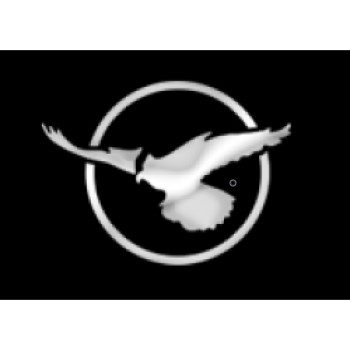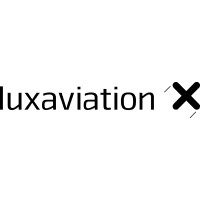In addition to our focus on enhancing IBAC communications broadly and improving outreach to the industry, you will note a focus on three key areas this year: developments at the International Civil Aviation Organization, IS-BAH and IS-BAO programmatic improvements, and information to operators in meeting potential requirements of the ICAO Carbon Offsetting and Reduction Scheme for International Aviation (CORSIA).
ICAO
GANIS/SANIS
The Second Global Air Navigation Industry Symposium (GANIS/2) and First Safety and Air Navigation Implementation Symposium (SANIS/1) were held 11-15 December 2017 in Montreal. The symposia were intended to lay the foundations for the Thirteenth Air Navigation Conference which will take place in October 2018. Decisions taken at ANC/13 will pave the way toward increased performance of the global air navigation system.
The GANIS portion of the week examined:
- innovative and emerging operations;
- future of CNS and avionics;
- information management;
- cyber threats;
- meteorology;
- airport operational performance; and
- civil-military cooperation.
In addition, the SANIS portion examined:
- global strategies and safety management implementation;
- safety and air navigation implementation strategies;
- deployment: from concept to operation, and success stories;
- airports enhancement, including ground handling and a nod of support for the IS-BAH Programme and IBAC’s contributions to the ICAO Ground-handling Task Force;
- performance-based navigation; and
- performance-based aerodrome operating minima.
More information is available HERE.
|
Implementation of Performance Based Communications and Surveillance (PBCS)IBAC issued Bulletin 17-12 on 8 December 2017, providing information on the implementation of PBCS and the progressive introduction of reduced lateral and longitudinal separation in the North Atlantic (NAT) region. This was based on the outcome of the 51st Meeting of the ICAO NAT Implementation Management Group (NAT IMG) held in Santa Maria, Portugal, 13-16 November 2017. The use of PBCS will allow reduced lateral and longitudinal separation between those aircraft that are equipped and authorized. The Bulletin can be accessed HERE. In addition to the NAT implementation, the implementation of PBCS in the ICAO Asia Pacific region was the principal topic of the Seventh Meeting of the FANS Interoperability Team-Asia (FIT-Asia/7) held in Bangkok, Thailand, 11-13 December 2017. The meeting identified six global issues that should be resolved prior to PBCS implementation: 1. Lack of State readiness to issue operational authorizations for PBCS; 2. Lack of RCP/RSP Statements of Compliance (SOC) for some aircraft; 3. A need for an alternative to the requirement for commercial contracts between operators and Communication Service Providers (CSPs); 4. Agreements on the roles of Regional Monitoring Agencies (RMSs) regarding PBCS; 5. Lack of global standardized requirement for PBCS data collection and monitoring; and 6. Lack of confirmation on the readiness of all ANSPs to receive, process, transfer and use PBCS flight plan codes The ICAO Meeting documentation is HERE. IBAC will issue shortly a bulletin on the results of this meeting. IS-BAH2017 ended with a total of 97 stations having achieved IS-BAH Stage I since its inception, with 8 reaching Stage II. During the holidays, we were still receiving several reports for audit review at both Stage I and Stage II, so we expect to see the number rise early in the New Year. The IS-BAH workshop schedule kicks off in Madrid, Spain, 18-19 January, and in sunny West Palm Beach, Florida, 25-26 January. There is availability at both workshop locations, and we would appreciate member associations’ assistance with promoting these and all the workshops in their regions, whenever possible. Details on the NEW subscription service for IS-BAH are coming soon, so watch for more news on this in the near future! The new IS-BAH newsletter format was launched in December and can be found in full HERE. Please feel free to send this newsletter out to all your members (there is an opt-in feature). We appreciate your continued support to make this programme a success and are excited about all of the opportunities in 2018 for further promotion and increased manual sales. IS-BAOPer the Vision 2020, the 2018 DRAFT is effective on 01 JULY 2018 and applicable on 01 JULY 2019. Any use of the 2018 IS-BAO for registration audits between 01 JANUARY 2018 and 01 JULY 2018 would be in the 2018 Beta programme only, and requires Director approval at administration@ibac.orgThe 2018 Standard is posted in DRAFT form on the IBAC website. Login to the IBAC website is required for access. Login credentials are offered at time of manual purchase. If you have forgotten yours, please contact bwalsh@ibac.org. The new Audit Procedures Manual (APM) is posted in revision #6. The APM is now a joint IS-BA APM supporting all IBAC IS-BA Programmes (Operators and Handlers). The APM is a stand-alone manual and will be revised as appropriate, rather than the former, annual revision process. The New Entrant focus group has begun with a representative group of operators from North America and Europe. The operators and the IS-BAO team are meeting monthly to analyze and improve the process to achieve IS-BAO registration. Internally, the IS-BAO team is preparing for the February 2018 European Aviation Safety Agency (EASA) review. EASA is vetting IS-BAO as an approved industry standard on behalf of the national aviation authorities (NAAs) of the European Union. The NAAs will then decide whether to use IS-BAO as an Acceptable Means of Compliance (AMC) in their respective States. In preparing for the process with EASA, IBAC has undertaken the International Standards Organization (ISO) process, which is providing a good roadmap for internal, organizational improvements in process and documentation. The Excel protocols are being improved with an updated version to be issued late in the first quarter of 2018. More details to follow. In January, IS-BAO is supporting the FAA Aviation Safety Officer (ASO) Workshops in Oklahoma City and will hold an outreach session at the Midwest Safety Roundtable in Chicago. |




